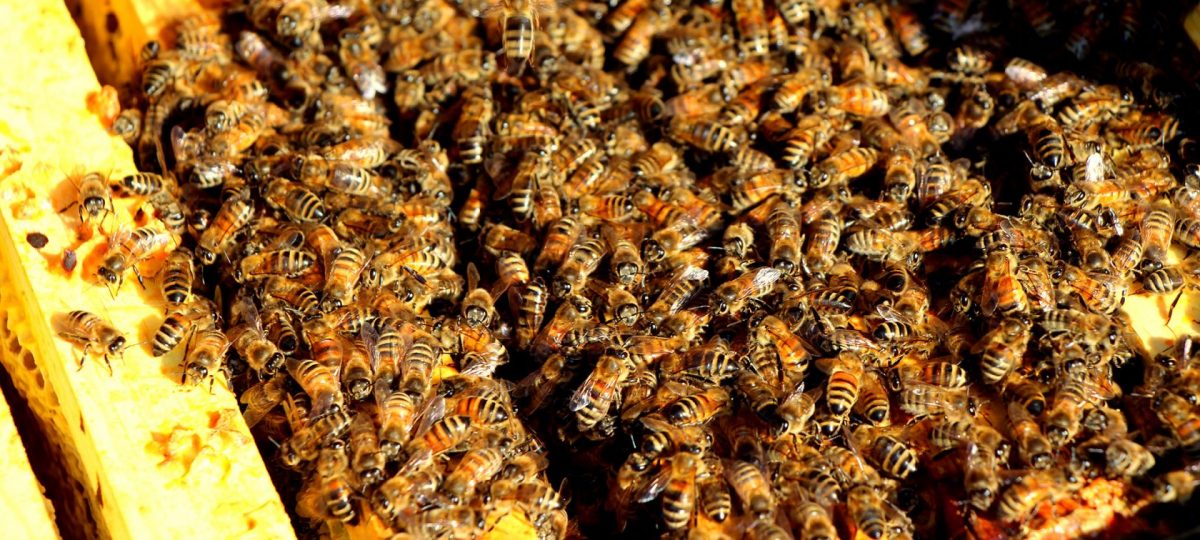Ottawa City Council is taking positive strides towards preserving bees and other pollinator populations in Ottawa, but more needs to be done, according to experts as climate change accelerates.
Recent initiatives include the building of a garden near City Hall and an educational speaker’s event held in April.
City staff are also reviewing roadside maintenance standards, an environmental projects grant program and proposing new “beautification projects” to create more natural, bee habitat, according to a memo released on behalf of city council.
Jessica Forrest, a professor at the University of Ottawa who studies the impact of climate change on pollinators and spoke at the city’s educational event, said the city has done the right thing by not focusing their attention on just on honeybees, but habitat for native bee species.
“There’s a lot of awareness about some of the problems that beekeepers have been having,” she said. “But honeybees really are a livestock species, kind of like chickens or cows.”
Honeybee management
Honeybees are not native to North America but were brought to the continent from Europe. There are more than 800 hundred species of native wild bees, while the honey bee is domesticated and lives on farms in hives set up by beekeepers.
“The issues that honeybees are having really more of a livestock management issue than an ecology issue,” added Forrest.
Honeybees can actually threaten other bee species’ populations. If honeybee populations expand because of urban beekeeping farms, it can lead to an increased spread pathogens that infect native bees. And honeybees increase competition for nectar in a habitat area, which can leave native bee species without food.
“Honeybees are problematic in North America,” Forrest said. “In areas like cities where we don’t need them for pollination, you can make an argument for them in agricultural settings, but not really in cities.”
Climate change can exacerbate these threats to native bee populations by lowering a flower’s ability to produce nectar. Forrest said she also worries about heat waves, which can make it difficult for a bee to fly and can lead to population decline.
Climate change impact
On the same day council received an update on pollinator projects, they received forecasts of how Ottawa’s climate will change, which promised more rain and more extreme temperatures – both bad for bees, said Forrest.
But the report released by city council also forecast the potential for shorter winters, which could be good for bee populations, she added.
“There’s going to be winners and losers with climate change,” Forrest said. “Some species are going to do better and some are going to do worse in temperate regions – the warmer season can be good for some insects.”
More needs to be done to give bees and other pollinators a “fighting chance,” according to Natasha Jovanovic, Living City Organizer with Ecology Ottawa.
“The only way that we will be able to effectively help pollinators in the long-run is integrating more greenspaces and green infrastructure throughout Ottawa. Pollinators are already under stress and – as the latest climate report points out – it will only get worse,” said Jovanovic.
“There’s going to be winners and losers with climate change. Some species are going to do better and some are going to do worse in temperate regions – the warmer season can be good for some insects.”
Jessica Forrest, professor at University of Ottawa
Designating a certain portion of public parks to natural, pollinator habitat like wildflowers instead of grass would help, said Forrest. Expanding education programs to encourage people to do the same in their own gardens is another important step, added Forrest.
“I know for myself and hopefully other people, this has been a really good time to just hang out in the garden and watch insects do their thing,” she said.
“I would really hope that people can take the opportunity this summer to notice the wild bees that are visiting their gardens and maybe appreciate the contributions they’re providing to our ecosystem for free.”




